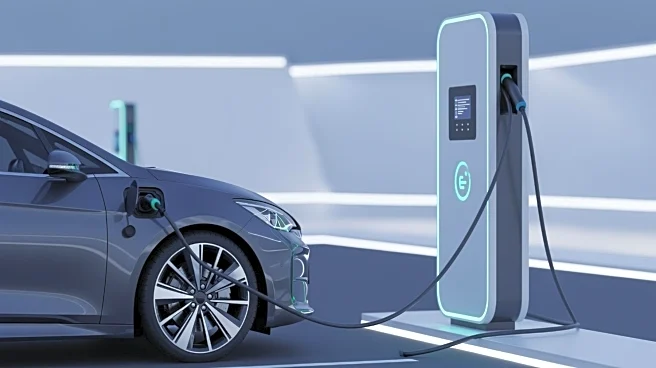What's Happening?
European car sales have increased for the third consecutive month, driven by the availability of more affordable electric vehicle (EV) models. This trend is occurring as the region grapples with an ongoing energy crisis, which has been exacerbated by geopolitical
tensions and economic pressures. The introduction of cost-effective EVs, such as the Renault 5 EV, has played a significant role in this sales boost. The European Union is actively pursuing green hydrogen initiatives to reduce reliance on Russian fossil fuels, particularly in the Baltics and through the Nordic-Baltic Hydrogen Corridor. This shift towards electrification and renewable energy sources is part of a broader strategy to address climate change and energy security concerns.
Why It's Important?
The rise in affordable EV sales in Europe is significant as it reflects a shift in consumer preferences towards more sustainable transportation options. This trend is crucial for reducing carbon emissions and achieving climate goals. The increased adoption of EVs also highlights the automotive industry's response to the energy crisis by diversifying energy sources and reducing dependency on traditional fossil fuels. This development could have a ripple effect on global markets, influencing U.S. automakers and policymakers to accelerate their own transition to electric vehicles and renewable energy solutions. The geopolitical dimension, particularly the U.S. pressure on Hungary to cut off Russian oil, underscores the interconnectedness of energy policies and international relations.
What's Next?
As the European market continues to embrace affordable EVs, automakers may further invest in expanding their electrified vehicle offerings. This could lead to increased competition and innovation in the EV sector, potentially driving down costs and making EVs more accessible to a broader audience. Additionally, the EU's focus on green hydrogen and renewable energy sources may prompt other regions, including the U.S., to enhance their own energy transition strategies. The ongoing energy crisis and geopolitical tensions will likely continue to influence energy policies and market dynamics, with potential implications for global energy security and economic stability.
Beyond the Headlines
The shift towards affordable EVs in Europe also raises questions about the long-term sustainability of the automotive industry. As automakers navigate the transition to electrification, they must address challenges related to battery production, supply chain logistics, and infrastructure development. The emphasis on green hydrogen and renewable energy sources may also lead to ethical and environmental considerations, such as the impact of mining for battery materials and the need for sustainable energy production methods. These factors could shape the future of transportation and energy policies, influencing regulatory frameworks and consumer behavior.















